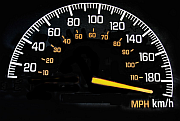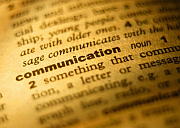Omaha Poker vs Texas Holdem
by Bill Burton
This lesson is about the difference between Omaha Poker vs. Texas Holdem at the How to Play Poker program.
The recent surge in the popularity of online poker has had a rippling effect.
While many new players are joining the game, many experienced players are trying their hand at new games.
Some Texas Holdem players are branching out to play and quite a few of them are trying the game of Omaha poker online.
Their downfall is that they think they can win at Omaha Poker using Texas Holdem Strategy.
Omaha Poker may look like Holdem because it is played with five community cards but that is where the similarities end.
In Holdem, you can use any five-card combination to make your best hand. You can use either one or both of your starting cards with any combination of the board cards. This is not the case when playing Omaha.
In Omaha Poker, you are deal four starting cards instead of two and you MUST use two cards from your hand and three cards from the board. This can cause confusion with new players who misread their hand they the inadvertently use three cards from their hand to form the best five card hand.
There are two variations of the game, Omaha High only and Omaha Hi/Lo split Poker.
The most popular form of Omaha is Hi Low Split where there can be two winners if there is a qualifying low hand. The Player with the highest hand will split the pot with a player with the lowest hand.
The Hi/Lo split game is sometimes called Omaha Eight or Better.
In order to have a hand qualify as low there must be no cards higher than 8 in your five card hand. Since in Omaha you must use two cards from your hand, there must be three cards on the board that are eight or lower. If there is no qualifying low hand, the winner with the highest hand will win.
Starting Hands
In Omaha, you get four personal cards instead of two and some players think that this gives them double the starting hand combinations. In reality with four cards, you actually have six possible two-card combinations. You have four cards ABCD.
The combinations are AB- CD- AC -BD –AD- BC.
With all these starting combinations, some Holdem players think that this gives them reason to play more hands. Just the opposite is true. The more cards you are dealt, the more selective you need to be with your starting hand requirements. It is important that all of your cards are coordinated and work together so they have a chance of improving on the flop.
You have to remember that each of the other players also has 6 two-card starting combinations so in a ten-handed game, you have 6 combinations but your opponents have 54 amongst them. You actually need to be more selective.
Starting hands need to be coordinated. This means that the four cards should work together such as having a straight possibility that may wrap around the flop. Double suited hands that contain aces are good for the nut flush however three or four cards of the same suit is a garbage hand in most instances as you diminish your flush possibilities.
Big Pairs Rarely Win
In Texas Holdem, big pairs are excellent starting hands and they can win the pot without any improvement. In Omaha however a big pair hard ever wins the pot.
One of the biggest mistakes I see is a player raising and re-raising with a big pair. While pocket Rockets may be a great hand in Holdem it will rarely hold up in Omaha in a multiway pot. In Omaha Hi/low where there is a chance for a split pot, every player with an ace and a small card will be playing which will further diminish that your pair of aces will be the winner.
Omaha is a game of straights, Flushes and full houses.
Positional Raises Don’t Work.
In Holdem you can sometimes raise from late position and win the pot when every one folds. In Omaha, you will usually have more players staying in to see the flop. This means that a positional raise will not work. With each player holding four cards, many of them will find some reason to see the flop.
Once the flop comes, many players will have some sort of drawing hand and will stay to the River to see if their hand improves.
In Holdem, it is rare that a player will have the absolute best hand known as The Nuts after the river but in Omaha, it is a common occurrence. If you are not drawing to the Nuts after the flop, you may find yourself second best or worse. In Holdem, 9 outs will give you a good shot at the winning hand. In Omaha, you may need 16 or 20 outs to even stay in after the flop.
In most instances, you will have to showdown the best hand to win.
More Bad Beats
Since more players are staying to see the flop, the pots can be very large in Omaha. Players will be getting correct odds to justify staying in a hand. This means there will be more bad beats in Omaha.
You have to have the emotional fortitude to handle this if you want to play the game.
Learn the Game
If you want to be a winner, you must learn to play Omaha Poker correctly. You can’t be a winner if you use your Holdem strategy for this game.
Omaha is not Texas Holdem and if you think it is, you should not attempt to play the game until learning otherwise.
Omaha Poker is followed by a Omaha Quiz
OR
How to Play Poker 1 Program
OR
Learn Poker Games 2 with 7 Game Types
Gambling Teachers Home
GT is attentive about getting the word out about our free programs, lessons and add-ons offered, however, we ask your assistance and consideration in promoting us.
Click link below that reads, "Enjoy this page? Please pay it forward. Here's how..." to add a link to your site, blog or personal page.





